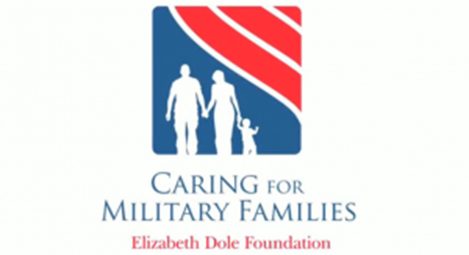OPINION
March 6, 2013, 6:30 p.m. ET
Helping Families Who Help Their Wounded
The Elizabeth Dole Foundation assists those who aid injured and ailing veterans.
By Karl Rove
They may be far from combat, but military families serve alongside their loved ones—enduring separation, anxiety and, too often, tragic loss. Some families have a particularly difficult burden to bear, having to care for wounded loved ones, those injured or struck by illness while serving. It is work that can stretch into a lifetime.
Since the 9/11 attacks, former Sens. Elizabeth and Bob Dole have regularly visited Walter Reed Army Medical Center and met husbands and wives, mothers and fathers, sisters and brothers, children and friends who stationed themselves by loved ones’ beds for weeks and months. Inspired by their example, Mrs. Dole in 2012 started “Caring for Military Families,” a program of the Elizabeth Dole Foundation.
This week the foundation released a report it commissioned from the Rand Corporation on challenges facing military caregivers. And at a luncheon in the nation’s capital on Wednesday, the foundation honored three nonprofits for helping these valiant families.
These organizations—the National Military Family Association, the Military Child Education Coalition and the Military Officers Association—didn’t wait for orders and weren’t content to have the government do it all alone. Instead, they identified unmet needs for uniformed personnel suffering visible or invisible wounds, and they helped their family caregivers meet them.
Twenty of those caregivers were recognized at Wednesday’s lunch. These newly dubbed Elizabeth Dole Foundation Fellows are ordinary Americans doing extraordinary work to help a family member recover from wounds and injuries. The foundation supports their individual efforts to help loved ones return to health. It also draws on their experiences to better understand the needs of caregivers, to spotlight and foster best practices, and to improve the health-delivery system.
No census of military caregivers exists, but Rand researchers estimate that 250,000 to one million Americans care for the 63,000 service members who were medically evacuated from Iraq or Afghanistan between 2001 and 2011.
The Rand study estimates that roughly half of military caregivers provide minor medical care. This includes administering medications or injections; managing pain, nausea or fatigue; caring for wounds; assisting with rehabilitation; watching for side effects of treatment; and helping bath, dress or feed someone injured, wounded or ill. It isn’t an easy life, and the labors don’t end there.
Rand estimates that 85% of caregivers also coordinate professional care and services, navigating a dizzying web of health providers, from the military’s health system to private doctors and hospitals, the Veterans Administration and the Veterans Benefit Administration.
The military’s health system has shortcomings. For example, Betty Easley of San Antonio, a mother of six and a Dole Foundation Fellow, says that her husband’s injuries went undiagnosed for seven years. Injured by an Iraqi IED, Army Specialist Greg Easley shrugged off his visible wounds only to find much later that he suffered from Post Traumatic Stress Syndrome and other invisible ailments. He and his family were homeless until a former unit commander arranged housing assistance.
Providing mental and emotional support is often crucial for helping warriors return to health. This can be difficult and demanding, and it can lead to psychological ailments or health difficulties for the caregivers themselves.
On top of all they must do, most caregivers also work regular jobs, raise children and attend to a family’s normal activities. Maj. Kevin Polosky, who works at the Pentagon, is a Dole Foundation Fellow who cares for his five children and his wife, Maj. Christine Polosky. While deployed with the 101st Airborne in Afghanistan, Christine was likely exposed to an unidentified but harmful chemical. She now suffers from life-threatening allergic reactions, acute psoriasis that makes walking excruciating, and severe rheumatoid arthritis, which causes extreme joint pain. Yet Kevin simply says, “There’s no greater job than to take care of the woman you love.”
The Rand study also estimates that 40% of those needing care may be unmarried, leaving parents or other family or friends to step into the breach.
While America’s involvement in Iraq and Afghanistan has ended or is winding down, the wounds remain for tens of thousands of our warriors. Their families and loved ones have shown extraordinary patience, grace and love in helping them rebuild their lives.
In a lifetime of public service, nothing Elizabeth Dole has done exceeds her work with military families who care for their own wounded. She and her husband know that where there is suffering, there is duty, that from duty fulfilled comes grace, and that from grace can come healing and hope. They deserve our gratitude and continuing help.
Mr. Rove, a former deputy chief of staff to President George W. Bush, helped organize the political action committee American Crossroads.
A version of this article appeared March 7, 2013, on page A15 in the U.S. edition of The Wall Street Journal, with the headline: Helping Families Who Help Their Wounded.












Follow Us